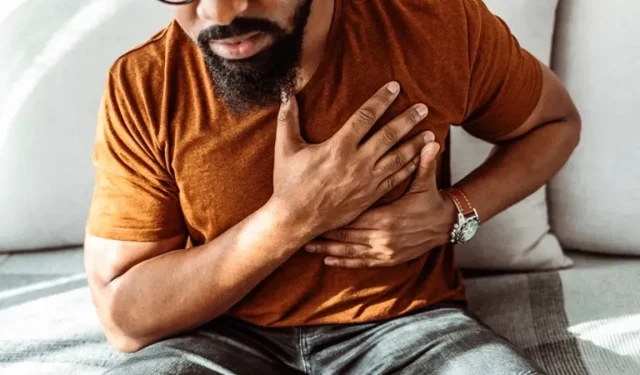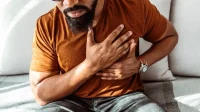A heart attack can happen at any time. How to prevent it? How to recognize it? How to react? Here’s everything you need to know to put the odds in your favor.
Many chronic diseases can greatly affect our lives, but heart disease is very important. In the United States, they are the leading cause of death, accounting for one in four deaths. A heart attack will occur every 40 seconds. It is very important to know how to react. And, unfortunately, there are a lot of wrong answers on this score. Here’s how to properly respond to a heart attack if it happens to you or if you become a witness to it.
Most Common Symptoms
When we think “heart attack”we think of chest pain, but this is not always the case. Among the most common symptoms, we actually mention chest pain, indigestion or nausea, extreme fatigue, shortness of breath, general malaise. “Virtually anything above the belly button”can be alarming, says Dr. Khadija Bretet, a cardiologist who specializes in heart transplants.
Call an ambulance no matter what
If you have symptoms, even if you are not sure if it is a heart attack, you should call an ambulance immediately. “The sooner you’re taken care of, the better,”says Dr. Grant Reid, a cardiologist and program director at the Cleveland STEMI Clinic. “Many patients are unaware of their symptoms and by the time they arrive, their heart muscle is already dead.”
The #1 indicator of how you will feel after an attack is how quickly you recognize the symptoms. There is a strong correlation between when you have an attack and how quickly doctors can open a blocked coronary artery.
Once in the hospital, the staff will definitely do an electrocardiogram to make a diagnosis. If it is indeed a heart attack, coronary angiography is performed. If there is a blocked artery, doctors will unclog it.
Do not take yourself (or a loved one) to the hospital
If you suspect a heart attack, do not go to the hospital, call an ambulance. You can pass out and injure yourself or others on the road, says Dr. Joel Beachy of the Mayo Clinic Health System in Eau Claire, Wisconsin. The same thing happens if a loved one wants to drive you – if the symptoms worsen, they may be distracted.
Paramedical teams are authorized for these emergency transports and can even provide first aid.
If you have an unconscious victim, call 911 and then begin CPR.
Take an aspirin if you have it.
If you have symptoms and have aspirin, take it after calling 911. It is better to chew it than swallow it, it will pass through your system faster. Why aspirin? This may help dissolve the clot blocking the artery.
Lawyer for yourself
The diagnosis of a heart attack can be difficult to make. For many reasons. If you cannot be heard by healthcare professionals, you can change facilities. If you feel that your symptoms are not being taken seriously, you may request a differential diagnosis. This is a list of illnesses that may be causing your symptoms. You ask medical professionals to explain why they ruled out a heart attack and what else it could be.
You may also want to bring a relative with you to help you ask questions on your behalf.
Work on prevention
You’ve heard it a million times: the best way to avoid a heart attack is to stay healthy, live a healthy lifestyle, exercise regularly, etc.
A heart attack can affect people of all ages, of all backgrounds, regardless of gender. Feel free to do regular checkups and if you are at risk, you should take the necessary steps in your life for prevention. Whether it’s exercising, eating better, sleeping better, reducing stress, or something else.


